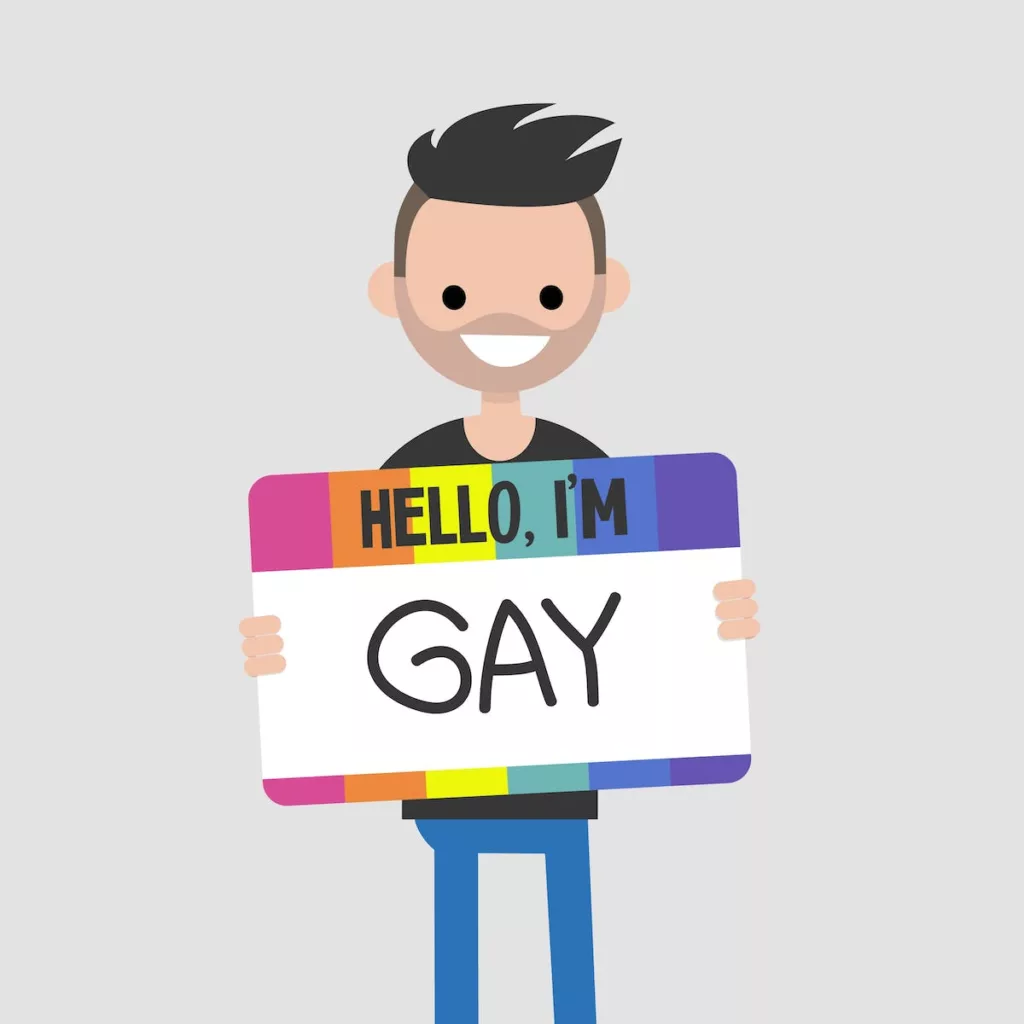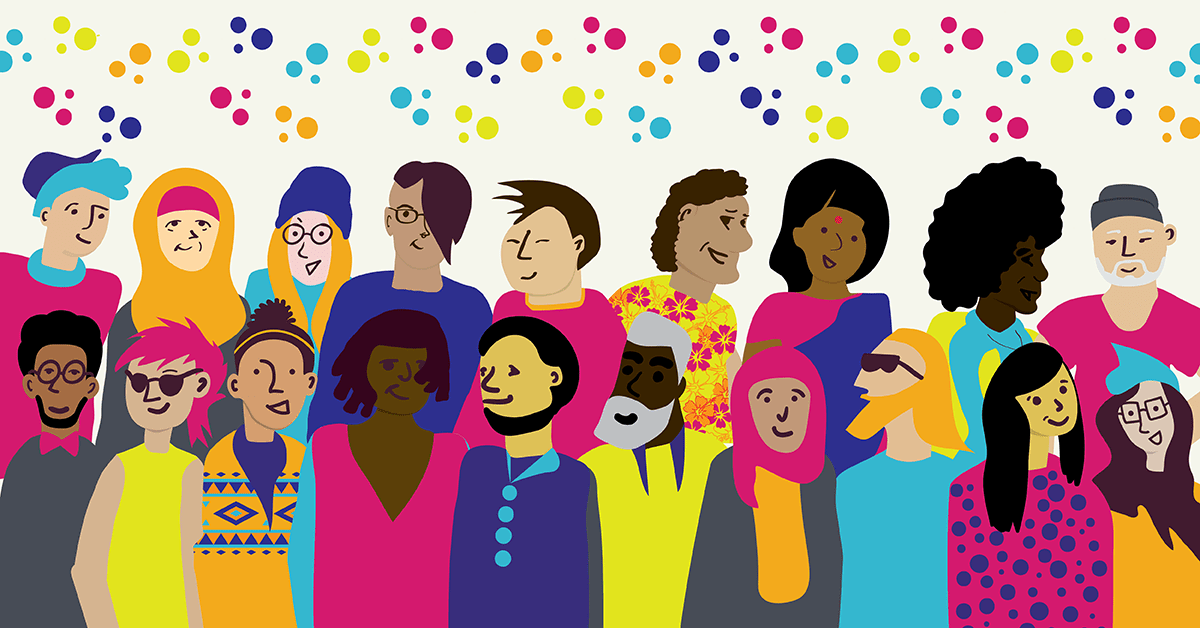Coming Out Continuum
James ReynolDs explores the ‘coming out continuum’ – the theory that coming out is not a one-time rite of passage
In my final year of university, I was lucky enough to apply for a creative writing dissertation. Part of the application was a written piece. I split mine in two; different settings, but with the same outcome. Whether small talk with a taxi driver or with a tutor, both assumed the narrator (a thinly-veiled version of myself) is straight. The final reveal: the narrator is gay. Six years later, I can still pick out what I wanted to say – that coming out is not a one-time rite of passage, but a life-long practice: it’s a coming out continuum.
Coming out is sometimes posited as a great rite of passage for LGBTQ+ people. Granted, for some, wanting to come out, especially to specific people like parents is an important step. It’s an affirmation and sharing of who you are. What I’m suggesting is that coming out doesn’t stop there. Every time someone asks you about your love life, questions why you’re wearing certain clothing or why you have particular opinions, you might have to come out yet again.
It would be nice to think that in 2023 people didn’t need to or feel the need to come out. I’m sure plenty of people would insist that being gay, bi or trans isn’t relevant in a number of situations. Most LGBTQ+ folk don’t want to run up to every Tom, Dick and Harry to discuss their sexuality or identity. Often, it’s reactive. There just happen to be several situations where people ask ‘do you have a boyfriend’ and the reply is ‘no, I have a girlfriend’.
Because of the heteronormative society we live in, this doesn’t stop, and practice does make perfect. You begin to build up strategies in your head about when, how and if you’ll have to out yourself. While it’s been a decade at least since any old family friend, vague acquittance or similar have asked me if I have a girlfriend, that quick thinking planning exists in the back of my head.
Sitting at the hairdressers, already vulnerable as a stranger wields sharp image-defining tools, they ask if you have a girlfriend. And, 99% of the time. I’d have no problem correcting them and saying that I’m gay. There’s never been an issue.
But, if I’m on the last train of the night, surrounded by the drunkest people in the city, I avoid all eye-contract and do anything to appear unapproachable. The last thing I want is for some bloke, stinking of dozens of pints, to ask me about ‘the ladies’.
Suddenly, coming out is comparable (not equivalent) to an art, a practice if you will. I’m no haberdasher, but it’s like learning to sew. You begin with the theory – needle, thread, in-and-out and then you attempt it. You sew a line, two things together, a little bag. You hope the people you show, those who love you, will love it and think how marvellous you are. Then you move on, try other methods; you know which stiches and threads, like situations and approaches, are going to work.
Even with all the tricks of the trade, the rest of the world continues to assume we’re all straight. Some LGBTQ+ can ‘pass’ as straight or cis-gender. Without opening our mouths, someone steps on an assumptive minefield.

Queer historian Mok O’Keefe (@thegayaristo) recounted his own experience of unintentionally passing. While in a senior management role, all the men (aka ‘the husbands’) were invited to Ascot. The wives were picked up in a limo and taken to the spa. A tad awkward for Mok’s boyfriend, especially when all the spa treatments were booked in the ladies-only section. “Not exactly inclusive,” Mok said.
Times like this, the ownness is on queer people to come out. In Mok’s story, there was no effort to be gender neutral or inclusive of non-straight people. If he’d come out, then sure, maybe things might’ve been different. But why must queer people always take the responsibility? There are these moments of everyday coming out because society is not structured to automatically include us. Are these structures loosening, sure. But I doubt Mok’s story is unique.
Undoubtedly, there are moments when passing provides safety. Just as queer everyday life can be made up of micro-outings, occasionally mum’s the word. Either way, to come out on a regular basis, to be confident, safe and willing to, is each queer person’s choice. The opposite of this choice, that which flies in the face of quotidienne coming out, is ‘gaydar’.
I will begin by asserting this: ‘gaydar’ is a dangerous fallacy that predicates you can identify someone’s sexuality based on surface knowledge. Anyone living in 2023 can tell you that LGBTQ+ people are as varied – physically, culturally, mentally and spiritually – as straight people. Yet unlike dial-up internet and the Spice Girls, we’ve not left this in the 90s.
My theory is that ‘gaydar’ attempts to make a monolith out of queerness. It becomes more compensable to non-queer people if we’re all the same. Based on external supposed signifiers of being LGBTQ+, straight people can perceive us without the topic of sexuality being mentioned. Assumptions, voiced or internalised, are made. They believe ‘they know’ without gay people even opening their mouths.
How does this relate to the coming out continuum? By making these snap judgements, the ownership of coming out, the decision to correct pronouns and genders on a daily basis, is taken away from queer people. People using ‘gaydar’ cannot comprehend the contextual nature of coming out. Sure, it might be safe and okay for a friendly colleague to ask quietly, but there is a specific queer fear of someone shouting “oh my god, are you gay?” in a room of strangers.
Coming out can be a continuous component of being queer. New jobs are accepted, new friends made and even in the most ordinary of situations, there’s a choice to make. Do I tell these people I’m gay?
Between my GCSE French oral exam and A Level one, I remember the courage it took to change from talking about ‘la personne de mes rêves’ (the person of my dreams) to ‘l’homme de mes rêves’ (the man of my dreams). Life can be made up of these sometimes random and sometimes significant moments of every day coming out. And from my perspective, it doesn’t stop. But, rather than flying under the ‘gaydar’ or allowing the world to make their presumptions, these daily moments can be powerful affirmations of yourself. After all, when we’ve done something once, we only get better at it.
Comments are closed.



